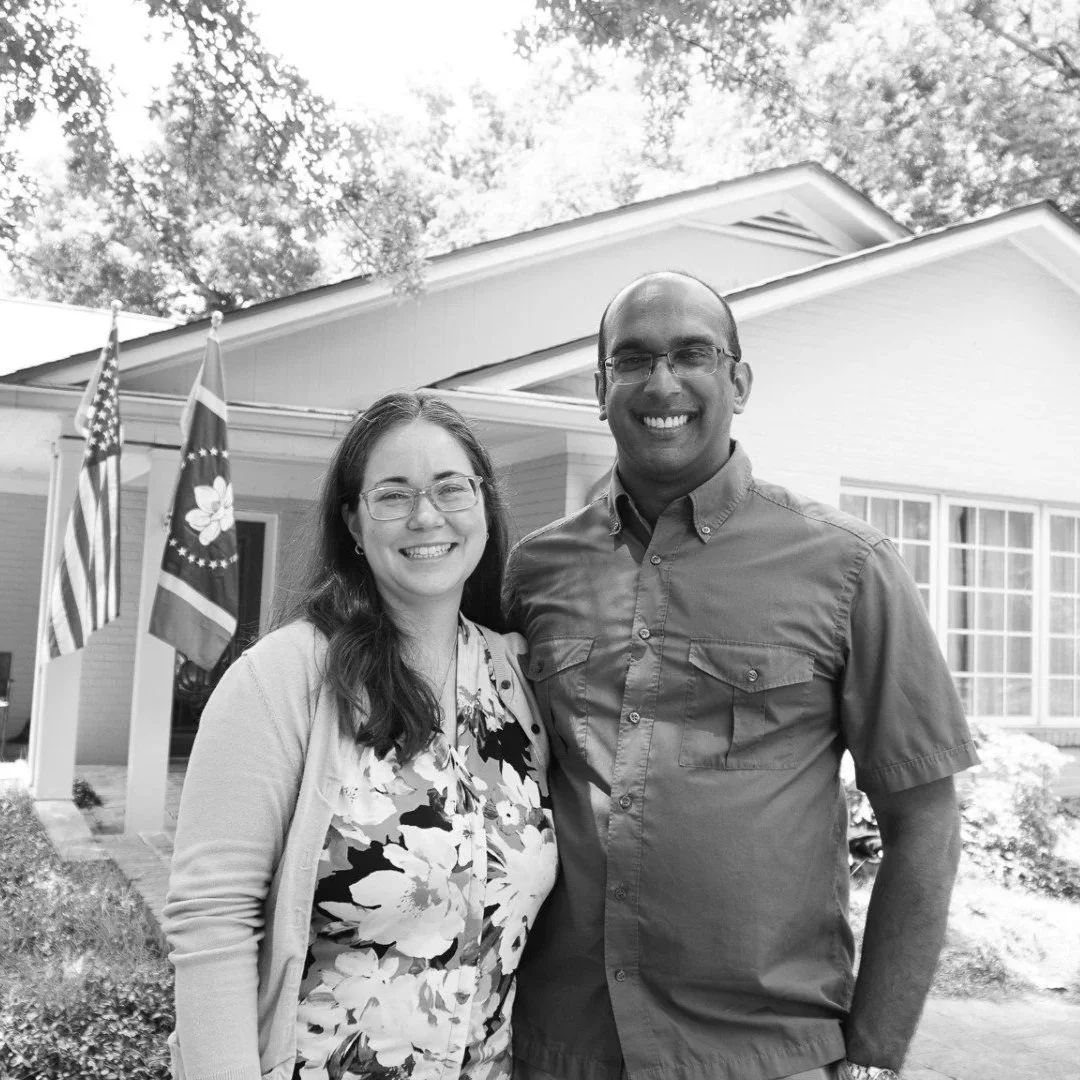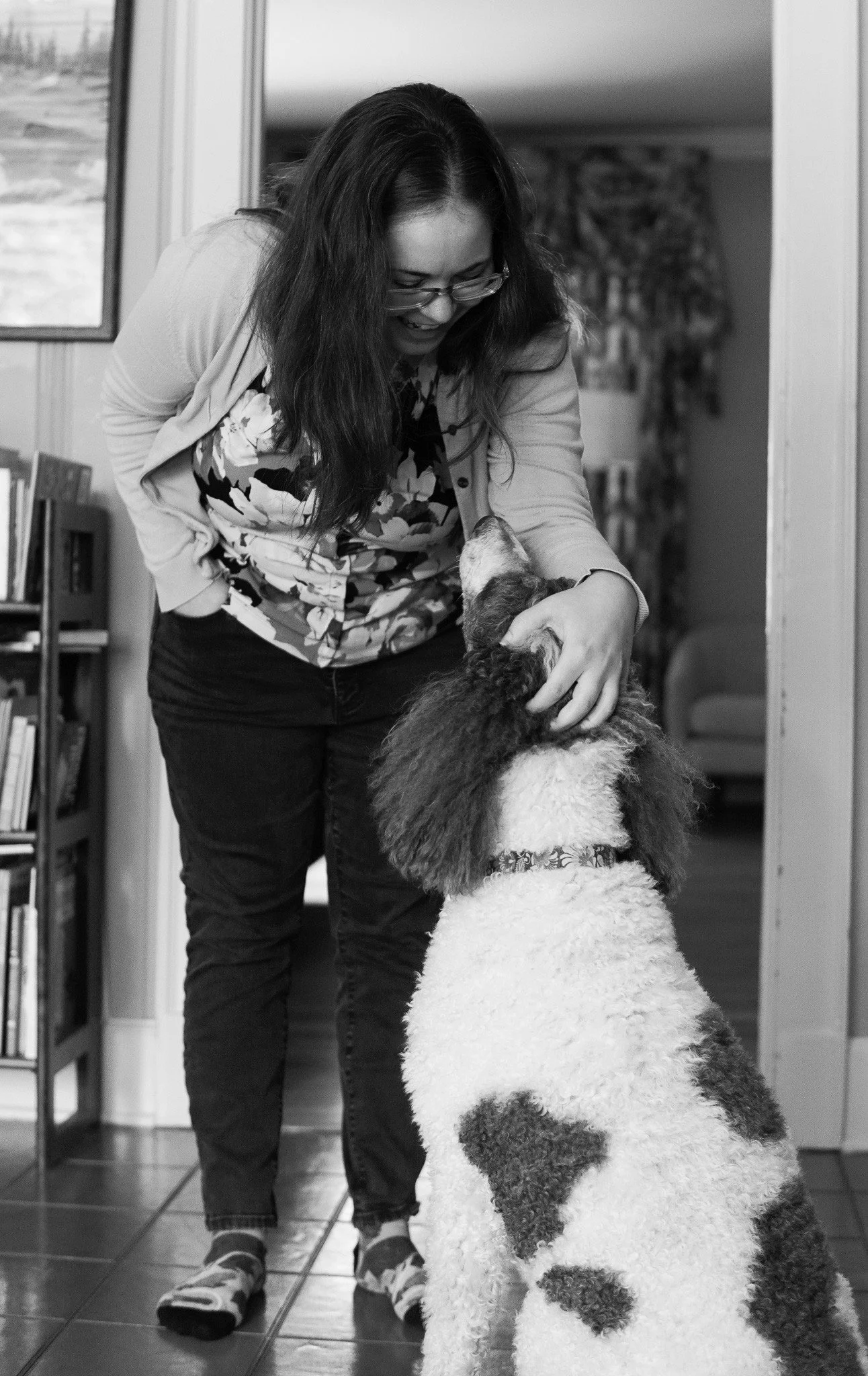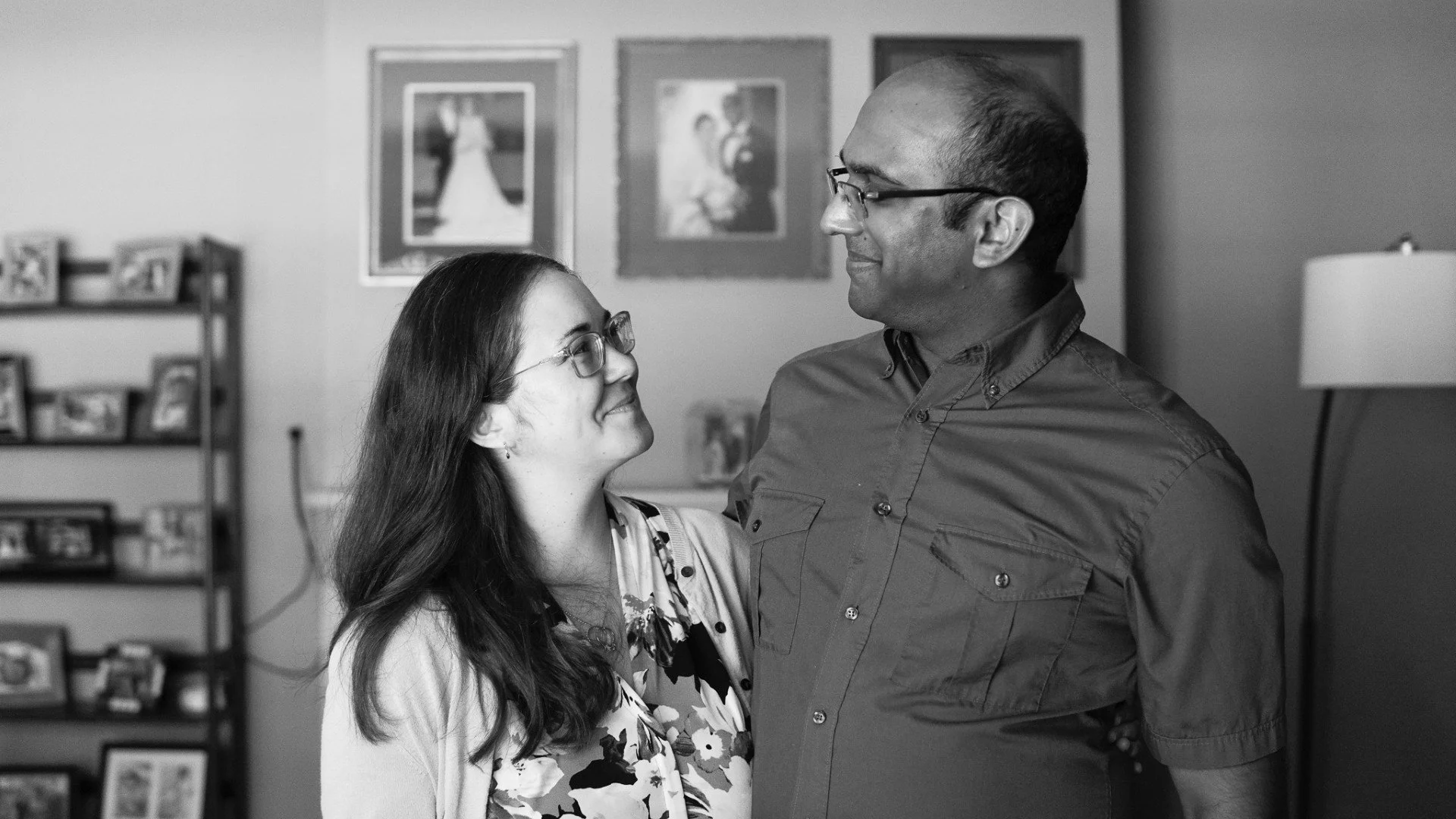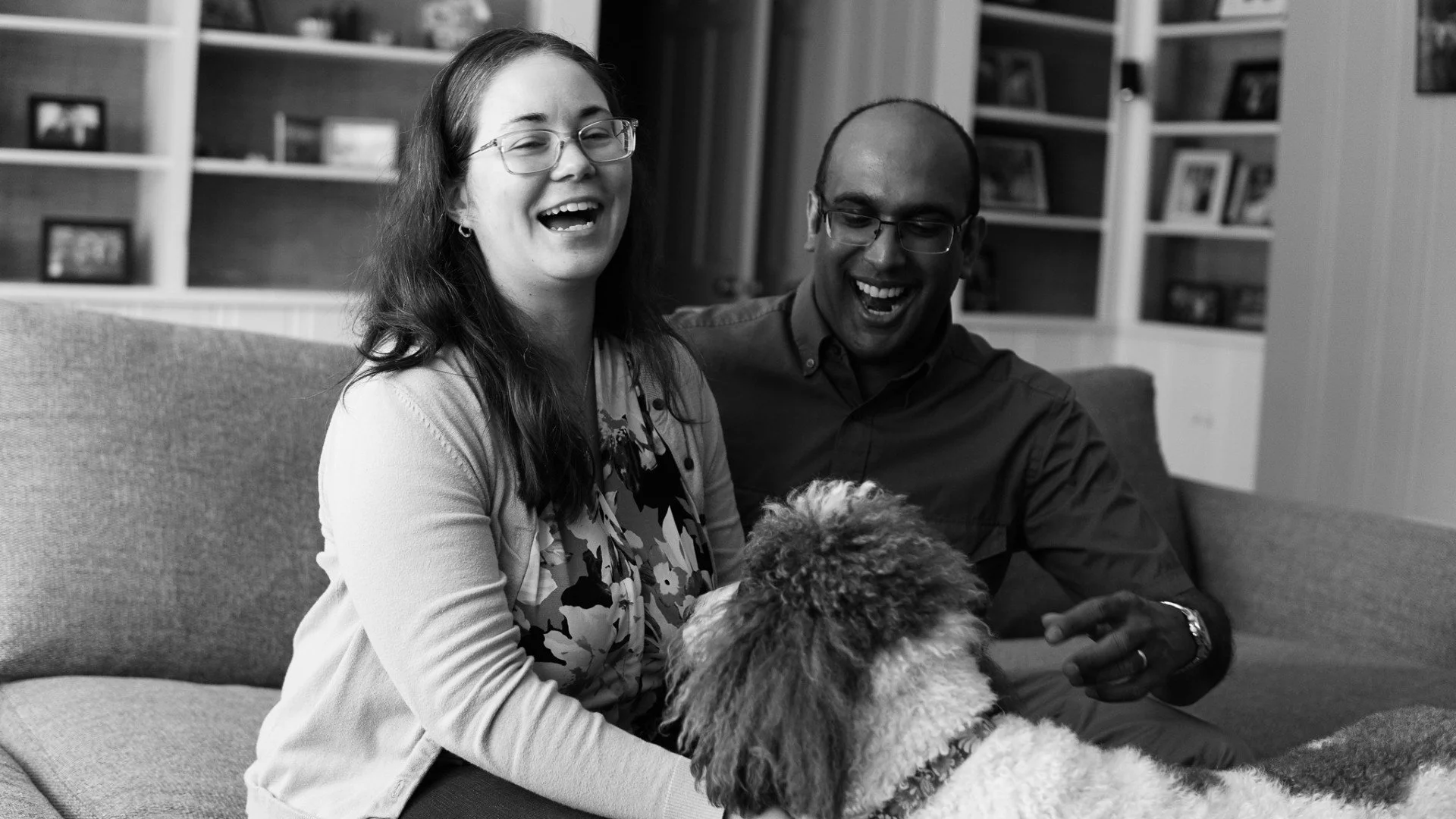Drs. Nina and Braveen Ragunanthan
Cleveland, MS
Drs. Nina and Braveen Ragunanthan are a team. Since 2021, they have served as frontline healthcare workers in the Mississippi Delta––no small feat in a community with a severe shortage of medical professionals.
Dr. Nina Ragunanthan (née Woolley), an OB-GYN at Bolivar Medical Center in Cleveland, MS, previously worked at the Delta Health Center on 24/7 shifts for three years. According to a 2024 report, Mississippi ranks last in women’s health and reproductive care outcomes; many counties in the Delta lack a single practicing OB-GYN. Dr. Braveen Ragunanthan, who goes by Dr. Ragu, “like the pasta sauce,” is a pediatrician at the Delta Health Center in Mound Bayou, MS and Bolivar Medical Center. In the Delta, the ratio of pediatricians to patients is 1:4000; in Mississippi, it is 1:2000.
The married couple have spent countless nights on call, awakening at “one a.m., two a.m., three a.m.” to the sound of the phone ringing, according to Dr. Braveen––another woman in labour for Dr. Nina, another child suffering an asthma attack for Dr. Braveen.
“We’re a team, all women and kids––no men, they’re out of luck,” Dr. Braveen joked.
Although they moved to Cleveland just four years ago, in 2021, the Ragunanthans’ service in the Delta was a long time coming.
In the summer of 2009, the two of them, fresh-faced nineteen-year-olds from Duke University, worked jointly as teachers at St. Gabriel Mercy Center in Mound Bayou. This was part of the Robertson Scholars Leadership Program (RSLP), which assigns each of its rising sophomores to a summer service internship in the South during the annual “Community Summer.” The experience of immersing themselves in the rich history and culture of the Delta proved indelible.
“That summer, when we were teenagers in college, really transformed our lives,” said Dr. Nina. She found the Mississippi Delta to be a “place of contradictions,” both “wonderful” and “challenging.”
One moment in particular “changed [Dr. Braveen’s] life” that summer. One day, walking into St. Gabriel Mercy Center for work, he saw an elderly African-American woman with a cane entering alongside him, likely to attend the senior citizens’ programming. “Good morning, ma’am,” he greeted her. “It’s a beautiful day.”
“She looked at me, and grabbed me––so tightly,” Dr. Braveen recalled, clutching at Dr. Nina’s arm to re-enact the scene. “She said, ‘Honey, it is a beautiful day. And we are blessed to be here.’” Then she let go, and walked into the Center. Dr. Braveen was “[shaken] to the very core.” On his “toughest days,” he would return, time and time again, to the wisdom he took from that fleeting encounter.
“She changed my life,” he stressed. “ …she woke me up to the sunshine, so to speak.”
As they progressed through college, graduate school, medical school, and finally residency, they “continued to reflect upon [their] experience in the Mississippi Delta,” said Dr. Braveen.
After graduating from Duke in 2012, the Ragunanthans pursued their careers in medicine with dogged determination.
Dr. Nina spent a year as a Global Health Teaching Associate at Weill Cornell Medical College before attending Harvard Medical School, where she studied under the tutelage of Paul Farmer, the renowned co-founder of Partners in Health.
Meanwhile, Dr. Braveen completed his Master’s in Public Health at the Johns Hopkins Bloomberg School of Public Health, after which he received a full-ride National Health Service Corps scholarship to attend the Virginia Commonwealth University School of Medicine.
“When there was a reason to write a paper about a topic, I would always go back to the Mississippi Delta, because that fascination was there,” Dr. Braveen said.
For Dr. Nina, “from a women’s health perspective,” the Delta was a “very compelling place” for its abnormally high rates of infant mortality, maternal morbidity and mortality, and pregnancy complications. She knew that, following residency training, it was somewhere her OB-GYN services “could be really utilized.”
In 2017, Dr. Nina and Dr. Braveen couples matched at the University of Pittsburgh Medical Center for residency training. But their sights were set on the Delta.
“When we decided on where we wanted to practice after we had finished all of our training, we really didn’t look anywhere else,” Dr. Braveen said.
“We both feel that healthcare is a human right,” Dr Nina explained, “and that no matter where you are born or where you live, that should not determine what level or access to quality healthcare you should get.” Their decision to practice as doctors in the Delta, then, was an active step towards addressing and remedying such disparities in the realm of rural healthcare.
While the move may have seemed drastic or unexpected to some, the Ragunanthans were resolute in their decision. Much of this confidence derived from former Duke professor and RSLP Director Tony Brown, who often reiterated: “Know your values, and big decisions become small decisions.”
Faith, too, significantly influenced the Ragunanthans. “Ultimately, this is also a spiritual journey for us,” Dr. Nina said. As Christians, helping the poor, sick, and needy was fundamental. “In our time on earth, our goal through our work is to try to get closer to God and godliness.”
“Before going outward, you have to go inward,” Dr. Braveen said. “You have to know yourself. You have to know what’s important to you.”
Upon returning to the Delta in 2021, the Ragunanthans, along with their 21-day-old daughter Priya, were met with a warm gust of Southern hospitality. The family was welcomed into the community with open arms. Neighbours brought homemade banana bread to the house. It was a pleasant surprise to Dr. Nina, who grew up in Washington D.C.
Both Dr. Nina and Dr. Braveen commenced work at the Delta Health Center, which was pioneered in the 1960s as the first Federally Qualified Health Center (FQHC) in the U.S. by the physician and civil rights activist Jack Geiger. As of 2025, one in ten Americans––i.e., over 30 million people––obtain healthcare through FQHCs.
The work was not easy. “When you read about [infant mortality or teenage pregnancy rates] or study it on a public health level, it’s all statistics,” Dr. Nina said. But “actually taking care of families” and bearing witness to the death of a child was different: “That’s a human, that’s a life,…and that’s a tragedy.”
No matter what, the Ragunanthans are fully committed to their patients. “I always had the philosophy that 99% of our health [takes place] outside of the room,” Dr. Braveen said.
As such, Dr. Braveen allows patients and families to contact him electronically through confidential channels. He sometimes receives upwards of 70 emails a day, but he invariably responds within 24-48 hours. “I’m proud of that,” he said, “and I will…continue to do that for my families going forward.”
It is undeniable that the Delta Health Center, like most medical centers in the Delta, is understaffed. Dr. Braveen emphasized the need to build up the healthcare workforce and infrastructure, especially in rural areas like the Delta, given the lack of personnel and resources at hand.
“We really need to make sure that we’re supporting Medicaid…and [access to] health insurances,” Dr. Braveen said. “…That’s critical for keeping our hospitals [in the Delta] afloat.”
Dr. Braveen noted that Cleveland was two hours from Memphis, TN and Jackson, MS, where patients in critical conditions are occasionally transported. “We need to do that to save a life…but we can’t do that all the time,” he said. “We really need our political leaders across the aisle from both to really be supporting the hospitals [in rural areas].”
Dr. Nina added that there was no such thing as a “silver bullet” when it came to the “fragmented” healthcare system in the Mississippi Delta and the U.S. at large.
“We need interventions on multiple levels,” Dr. Nina argued. Speaking of the upstream social determinants of health, she provided a litany of examples of how to approach them in the Delta: on an individual level, by helping people finds ways of monitoring their own blood pressure; on a community level, by constructing accessible walking trails; on a statewide policy level, by bolstering social support programs and job opportunities in the region.
Still, despite the various challenges, the work comes with its rewards. “Even though we deal with tragedies and we deal with sickness and we deal with emergencies,” said Dr. Nina, medicine was “blessed” with “beautiful and special and inspiring” moments that compelled both of them to continue in their path of service.
For Dr. Braveen, the best part of his job is seeing “brand new babies…grow into kids.” Some of the relationships he formed in 2009 at St. Gabriel’s have stretched into the present day, allowing for “full circle” moments that he cherishes.
In obstetrics, Dr. Nina bears witness to innumerable instances of childbirth, each of which are “beautiful and sacred,” she said. She has a particular soft spot for mothers who, following traumatic experiences or complications, later enjoy a “beautiful redemption” in the form of a healthy newborn.
Having settled in the Delta with their daughter when she was less than a month old, the Ragunanthans consider Cleveland “home,” a place of “important foundational moments as a family.” Due to family circumstances, however, they will be relocating to Pittsburgh, PA, and continuing their work as physicians. But a permanent departure is not in the cards; once again going above and beyond, they both intend to visit the Delta regularly to continue caring for their patients.
“We’re leaning into our values again,” said Dr. Braveen. But, he said, “This will always be home for us.”
In the Ragunanthans’ home, a quote by Martin Luther King Jr. on justice––and its relation to injustice––hangs on the wall; an inspiration and a reminder. While discussing the motivation behind his and Dr. Nina’s work, Dr. Braveen references King’s words: “The arc of the moral universe is long, but it bends towards justice.”
Smiling at Dr. Nina, he asserted: “We’re doing our best…to also bend that arc.”











